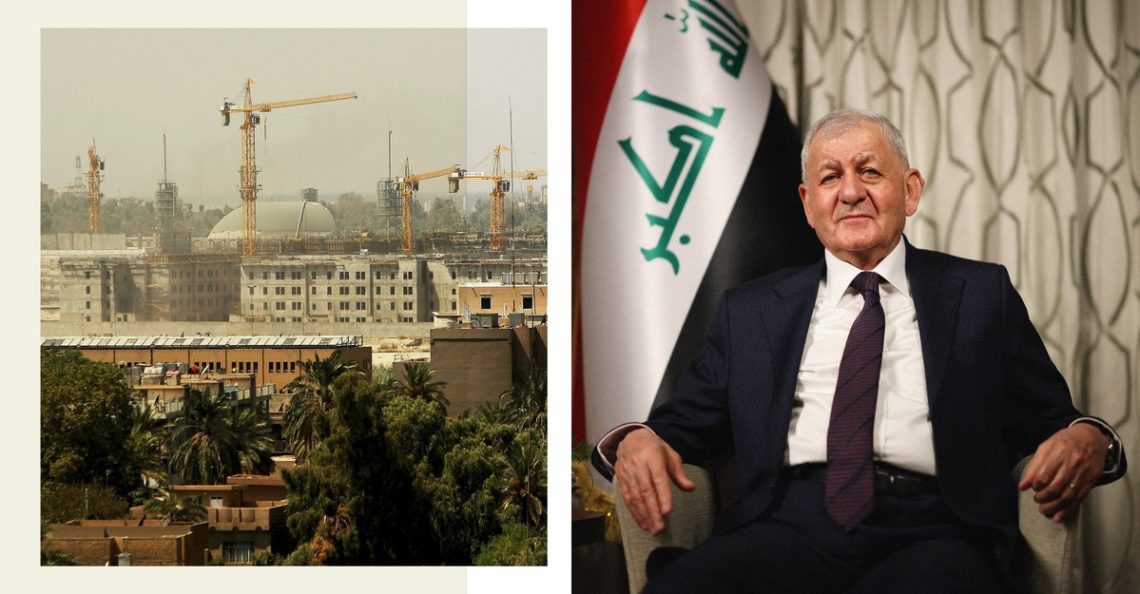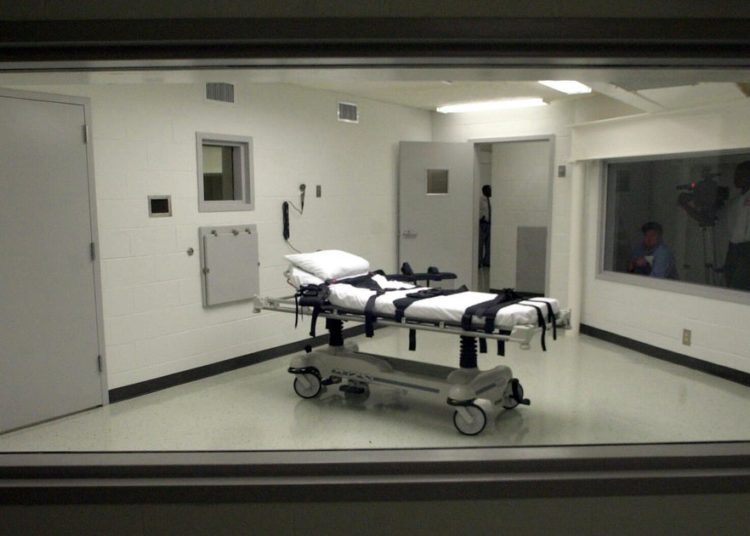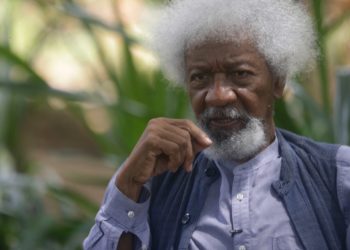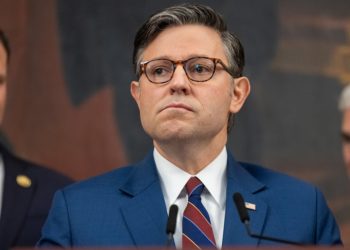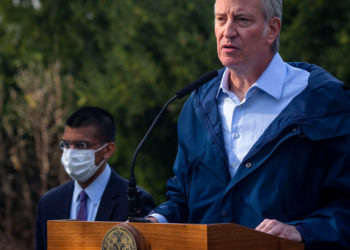For more than three years, Iraq has managed to stay out of the headlines. Wars and insurrections have afflicted other parts of the Middle East, but Baghdad—a city whose name was once synonymous with suicide bombings and sectarian murder—has been spared. The highway from the capital’s international airport was known as the world’s most dangerous during the years I lived there, after the 2003 invasion by the United States; now it’s lined with skyscrapers and high-rise apartment towers. Newly built bridges and overpasses have started to ease the city’s notorious traffic.
But many Iraqis have told me they fear that the calm will not last. Iran has taken a beating from both the United States and Israel over the past year, and its vaunted “Axis of Resistance” lies in ruins. Iraq finds itself in the uncomfortable position of being the Islamic Republic’s last major ally in the region and an economic lifeline for its cash-starved regime. President Donald Trump has said nothing about this relationship, even as he’s continued to try to choke off Iran’s economy with sanctions.
Now elections are approaching—Iraqis will vote for a new parliament on November 11—and the country’s current prime minister, Mohammad Shia al-Sudani, is touting the country’s relative calm and prosperity. His campaign emblem is a crane, symbolizing the construction boom of recent years. He’s hired more than 1 million civil servants over the past year, salving the country’s unemployment crisis (and putting the state at even greater risk of bankruptcy). But alongside the bullish mood are worries that Iraq could once again become a battleground between the United States and Iran.
Al-Sudani has presided over a period of soaring oil prices, thanks to the war in Ukraine, and rampant corruption. Putting a number on the sums of money siphoned into private hands is difficult, but several government insiders and businesspeople told me that this problem has gotten much worse since 2022, when the brazen theft of $2.5 billion in tax revenue became known locally as the “heist of the century” and a high-water mark for Iraqi corruption. Much of the stolen money ends up in the coffers of the Iran-backed oligarchs and militias that dominate Iraq’s political scene.
“It’s not by accident that we’ve had zero populist protests—everybody is getting paid off,” one former government official told me, asking not to be named because he feared retaliation. “This is unsustainable. The moment oil goes down below a certain level, you can’t make payroll. The moment that happens, you have bloody protests.”
That’s what happened in October 2019, when demonstrations against corruption and high unemployment broke out across Iraq, leading to street clashes that left hundreds of people dead. Two years of political turmoil followed, as then–Prime Minister Mustapha Kadhimi tried and failed to tame the Iran-backed Shiite militias known as the Popular Mobilization Front.
Those militias first emerged in 2014 to help the Iraqi army fight the ISIS insurgency. Unlike Kadhimi, al-Sudani has embraced and enriched them. He has handed out government contracts at a frantic pace and created a state-owned entity, the Muhandis General Company, that has been described as an Iraqi version of Iran’s Revolutionary Guard Corps. Earlier this month, the U.S. Department of the Treasury sanctioned Muhandis, calling it a front for terrorist groups. The militias and their allies continue to benefit from the Iraqi government’s “dollar auction”—a daily sale of U.S. currency that has long been a vehicle for large-scale fraud.
Al-Sudani has billed himself as a pragmatist. Iraq shares a porous 994-mile border with Iran, after all; the prime minister has to balance the interests of this powerful neighbor against those of an even more powerful partner in Washington. Some give him credit for trying to domesticate the Shiite militias. “These guys are still militants, but now they wear suits and are embedded within the state,” Maria Fantappie, the director of the Middle East program at the Institute for International Affairs in Rome, told me. “Some would say that’s better than having them outside, launching rockets at U.S. bases.”
Still, in awarding government contracts, al-Sudani has skirted many of the usual procedures and safeguards. Doing so may have helped him get more bridges and roads built than some of his predecessors. But the favors he has done for the militias also raise troubling questions.
Earlier this year, Iraq’s Ministry of Communications signed no-bid contracts with the Popular Mobilization Front and the Muhandis General Company for the maintenance of Iraq’s fiber-optic grid and the construction of a new, alternative grid. The contracts, whose existence has not previously been reported, give the militias something they have long wanted: control over Iraq’s data network. Several Iraqi officials and people in the telecom field told me that these contracts are troubling not just because of the opportunity they offer for illegal profiteering. The larger fear is about security: With the right kind of expertise, the militias or their patrons in Tehran could eventually use their control over the grid to surveil anyone in Iraq.
In a similar vein, al-Sudani recently tried to push through an exclusive 5G cellphone contract for a different consortium affiliated with the Popular Mobilization Front. A high-court judge has been holding up the contract, saying it raises questions of national security, but he may not be able to suspend it indefinitely.
Those who defend al-Sudani say he is working within the limits of Iraq’s post-2003 sectarian power-sharing system, known as muhasasa, which was meant to safeguard pluralism but has turned instead into a patronage mill. Some say al-Sudani, a Shiite from a small party, has been building a multisectarian coalition that could do well in the elections. But even if he wins a large bloc of votes, he will almost certainly remain politically captive to the dominant Shiite political faction, known as the Coordination Framework, which is backed by Iran and has strong ties to the militias. The margin for real political change is small.
Recent American presidents have reluctantly accepted the limits of Iraq’s political system, pressing Iraqi leaders to distance themselves from Tehran but avoiding the kinds of measures that would tilt the country back into open conflict. Trump, who is not known for his patience with diplomatic compromise, may take a different approach.
The U.S. president has taken little notice of Iraq since he returned to office in January. But the recent decision of his Treasury Department to sanction the Muhandis General Company and two prominent Iraqi oligarchs has set off nervous whispers among Baghdad’s kleptocrats.
“These guys are afraid,” one former government official told me. “As long as the U.S. doesn’t have a deal with Iran, the maximum-pressure campaign will continue. And that could mean going after them in Iraq.”
The post Iraq’s Dangerous Deal With Iran appeared first on The Atlantic.
